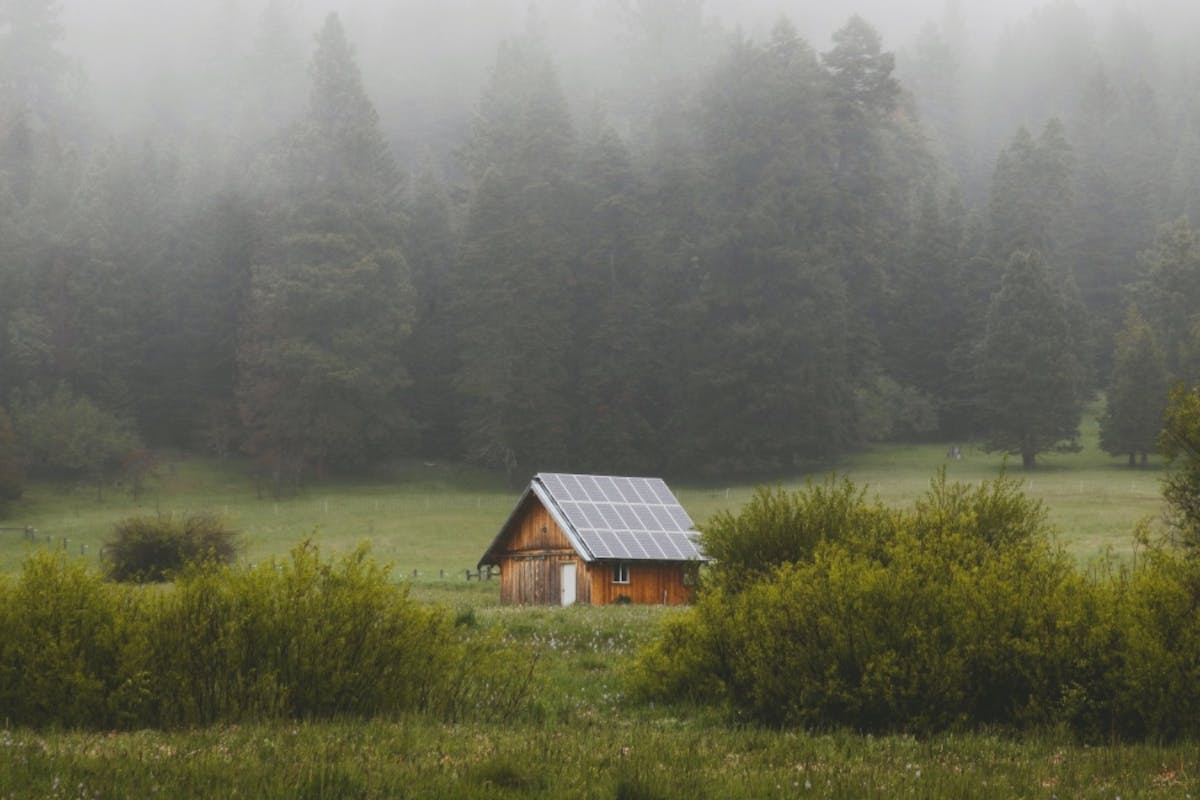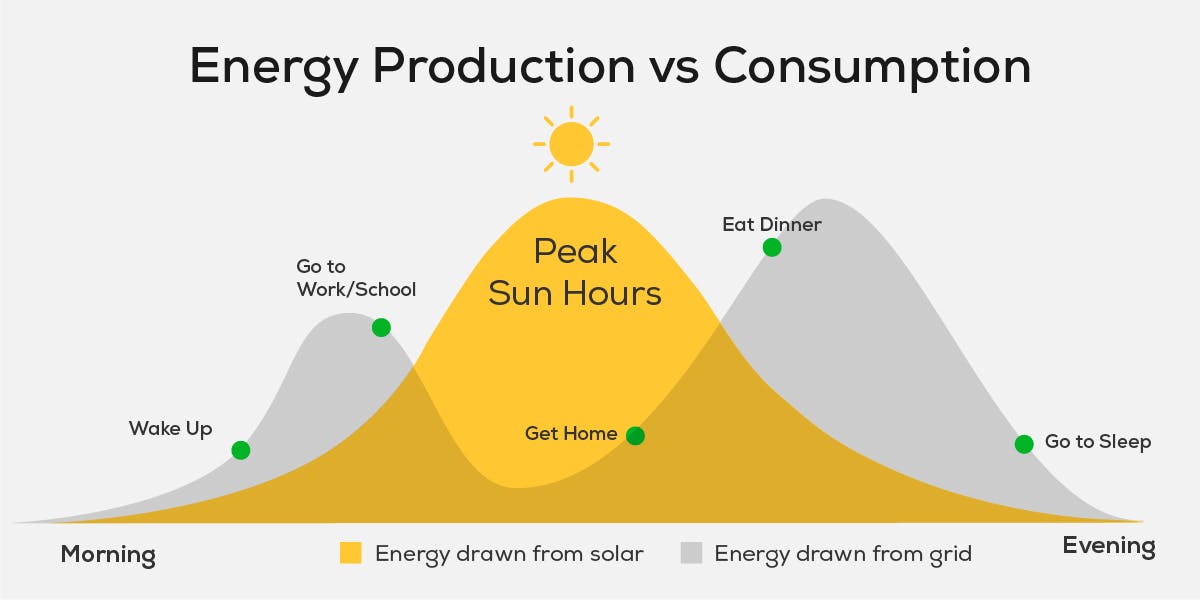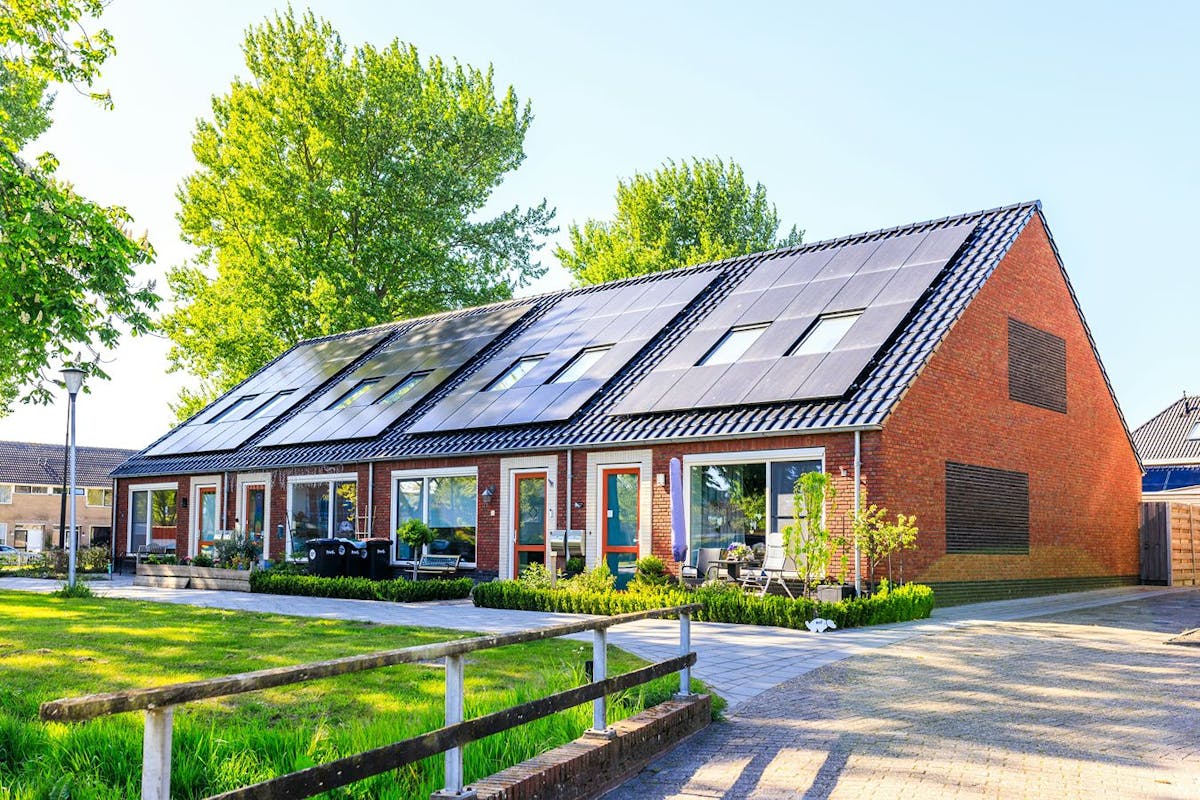What Does “Off the Grid” Really Mean?
Last edited
Author
Andrew Giermak
Solar and Electrification Writer and Editor
Editor
Andrew Blok
Electrification and Solar Writer and Editor

Energy independence and having your own free, renewable power are major plusses with home solar panels. Going solar also means saving money and using less fossil fuel for 25 years or longer.
Going solar doesn’t mean you’ll be going “off the grid.” Even with more independence and less use of your utility company’s power, your residential solar system will, for the vast majority of people, be connected to the utility’s electric grid.
We’ll go over the benefits and reasons of having a home solar system on the grid, such as how it can save you more money and give you added security and peace of mind.
See how much you can save by going solar with Palmetto
What is the grid?
The grid is the infrastructure used by utility companies to transmit and distribute electricity. That includes transmission lines (aka “power lines”), electrical substations, and the power distribution equipment that connects the grid to every home and business.
Although electric power plants are connected to the grid, they aren’t considered part of it. The same logic applies to your home or business in that they’re connected to the grid, but aren’t part of it either.
In most cases, the power used by your home or business is generated by local power plants affiliated with your electric utility company and then transmitted to you over the local grid. However, most power plants are interconnected across large regional grids.
What going off the grid means
There are levels or degrees of going off the grid, but when it comes to electricity, off the grid means your home is not connected to any electric utility, or the electric grid.
The only way to be truly off-grid is completely disconnecting with any electric utility. Thus, there are no physical wires leading from the power lines into your home, and you don’t get bills from the utility company or a retail electric provider. When you go completely off the grid, you generate all your own electricity for your energy needs.
Off-grid living with electricity is possible with solar power and/or your own generator, but it also requires you take the extra step of disconnecting from the grid.
Going solar isn’t living off the grid
That’s right. Installing solar panels on your roof is not going off-grid. However, wiring your rooftop solar system into your home's electric system to run your appliances and meet your energy needs does make you the primary producer of your home electricity.

Your solar power system produces electric power by converting sunlight into a flow of electricity and, as you’d imagine, it only generates electricity when the sun is shining. In most cases, your home will use electricity as the system generates it. Thus, your average home using solar panels isn’t off the grid meaning you’re still using grid electricity when the sun isn’t shining (e.g., at night) or shining less (e.g., in the winter).
The importance of battery storage
Batteries for solar power storage are increasingly effective, and many homeowners add them to their overall solar power system design.
Solar batteries store the excess power created by the solar panels when the sun is shining. The stored electricity can be used to meet your needs any time, but most typically at night, during overcast days, or during blackouts.
However, the chief problem with off-the-grid solar is installing enough energy storage capacity to meet all your power needs. It is a significant expense to install enough battery capacity for the times when you are not generating solar energy.
Reasons to stay connected to the grid
Most homeowners who install solar power remain connected with the grid. Using a combination of solar panels and grid electricity can produce substantial, regular, and long-term savings on your electricity bill because you are generating most of your own energy.
You have additional advantages staying on the grid.
- In areas with net metering, you can receive credit for the extra electricity your home produces and feeds back into the grid.
- Any time your solar panels don’t generate power (including nights and cloudy days), you automatically and seamlessly switch to using power from the grid.
- If you need to fix a problem with your solar system, you use the grid for power until the repairs are complete.
- You become part of a new future for clean energy generation solutions in America.
See how much you can save by going solar with Palmetto
What it takes to go off-grid with solar
There’s no official count of the precise number of people living off the grid and, of those, how many are using solar power for electricity. But it’s likely a small fraction of the overall population. Why? Because it’s an intricate process with several interconnected systems and some considerable sacrifices.
To make this choice work, a homeowner may need massive energy storage in the form of batteries so they don’t lose power during long storms, nights, and the short days of winter when it’s harder to generate enough solar power. The problem is that building a system so heavily reliant on battery storage is expensive.
For that reason, the few people who elect to use off-grid solar for ideological or environmental reasons make very intentional choices about their energy usage, such as designing homes and having ways of living that use very little electricity. Even then, they often have backup generators installed on their property in case their solar panel system can’t meet all of their energy needs.
Reduce your dependence on the grid with solar
Many people want to go solar because they want to help the planet and be protected from problems on the larger electricity grid. For most homeowners, the ideal setup is to install solar panels and remain connected to the grid, even as you enjoy some of the perks of using off-the-grid solar. Not only will you use less grid electricity because you’re generating your own power from your home solar panels, but you can still use the grid as a backup in case of emergencies.
If you have more questions about the benefits of solar panels, you should learn how solar panels work on your home. If you’re interested to learn how much you can save with solar power, check out Palmetto’s free solar savings tool.
See what solar can do for you:
Frequently asked questions
Can I have no electric bill by going solar?
Solar energy typically won’t completely eliminate your electricity bill. Even with panels that offset all of your usage, you will typically still have to pay fixed monthly utility charges.
If there is a power outage, will my solar power go out?
A home solar power system without battery storage and connected to the grid will, in the vast majority of cases, lose power when there is an outage.
Solar panels with batteries can temporarily disconnect from the grid. During a power outage, you’ll be able to use the electricity from your solar panels or stored in your battery to power at least part of your home.
Does installing solar panels mean I’m disconnecting from my utility?
In most cases, no. Disconnecting completely from your utility is often an onerous and expensive job. Staying connected to the grid means you can take advantage of net metering and use grid power when you need more electricity than your solar and storage system can supply.
Disclaimer: This content is for educational purposes only. Palmetto does not provide tax, legal, or accounting advice. Please consult your own tax, legal, and accounting advisors.


